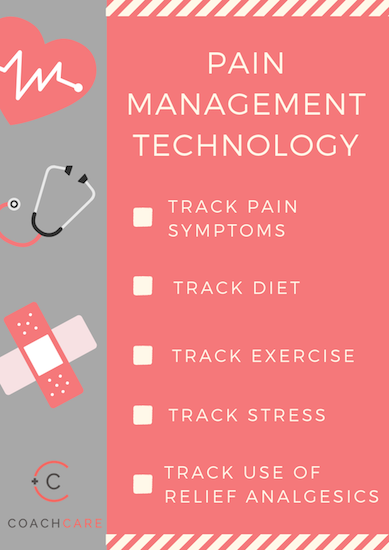Proactive Wellness Programs as a Key Component of Successful Pain Management
Pain management is a fascinating and challenging area of medicine, and one where every individual can benefit from a treatment plan that is, well, individual. For clinicians, this means not only examining how each patient responds to different pain medications, but also how their unique circumstances may contribute to their experience of chronic pain.

It’s not hard to see how digital health technologies and patient care reports lend themselves to the pain management specialty. A growing body of evidence supports incorporating multiple modalities, including weight management and wellness programs, into a comprehensive pain management treatment plan. Keeping track of these modalities for each individual patient represents a real organizational nightmare, which can mean that beneficial interventions are overlooked, to the detriment of patient care and clinician success.
Stress Support and Pain Management
Ironically, stress can be a major factor where pain management is unsuccessful. Patients who live with chronic pain can often feel like managing their treatment plan is a full-time job, and the stress of arranging appointments and staying on top of medication refills can be exhausting and, sadly, exacerbate feelings of pain.
Researchers in Tel Aviv found that inducing acute stress in volunteers significantly reduced their ability to modulate pain. The more stressed out they became, the harder time they had with pain management. This suggests that patients who tend to react strongly to stress may benefit the most in terms of pain management from interventions that help them to better cope with stress and that help reduce stress in the first place.
Taking the Pain out of Pain Management
Digital health technologies such as patient portals, online appointment booking, pain-tracking software, patient care reports and automatic medication refill requests can make life much easier for those living with chronic pain. Such technologies support patient education and increase self-efficacy and engagement, all of which contribute to a greater chance of successful treatment.
These types of technology can also offer on-demand advice for healthy ways to manage stress and pain. Instead of what can often seem like a haphazard and scattered approach to complementary therapies, clinicians can put together a tailored package for each individual client, depending on their interests, circumstances and needs.
This might mean incorporating simple guided meditation and mindfulness practices, yoga exercises, weight management support and even peer support in a treatment plan. These can all help support improved pain management.
Proactive Wellness Programs for Pain Management
For clinicians, a proactive approach to pain management increasingly involves the use of these wellness modalities. Instead of simply mentioning yoga or mindfulness, or scribbling down the name of an herb that might help with stress or other health issue, clinicians can make use of a range of tools to better support patients.
For example, instead of a clinician mentioning mindfulness during a consultation and leaving it up to the patient to track down resources, they could use digital health technologies to have a daily mindfulness meditation sent to the patient. And, by having information available through a patient portal, patients can refer back to hard-to-remember information and advice given during a face-to-face consultation.
These tools make it easier for patients to follow through on complementary wellness practices that can help them reduce pain and, therefore, reliance on pain medications. They also help patients track their pain symptoms, diet, exercise, stress, and their use of relief analgesics, which then allows for easier identification of likely triggers for pain flares.
Body and Mind – Better Pain Management Through a Holistic Approach
In a paper due to be published next year in The Journals of Gerontology, researchers note that more than 60% of older people who use complementary health practices believe these are important for maintaining health and well-being. Over half of the researchers note that these wellness practices, which included acupuncture, herbal therapies, chiropractic, massage, meditation, Tai Chi, and yoga, improved overall health and helped the patients to feel better. More than a quarter of older adults said these modalities gave them a better sense of control over their health, and just shy of a quarter said they made it easier to cope with health problems.
An article in the Boston Globe published back in 2016 talked about how for patients with chronic pain, these seemingly small daily practices can really add up to something greater than the sum of their parts.
Chronic pain involves both body and mind – something many clinicians have long recognized. By incorporating wellness programs and weight management into a comprehensive pain management treatment plan, clinicians can greatly increase their patients’ chances of a successful outcome.
About CoachCare:
CoachCare powers clinics with a virtual health and remote patient monitoring platform that reflects your unique workflow and protocol. Remote patient monitoring insurance features drive significant additional revenue while lowering the overall cost of care. Contact us to learn more.